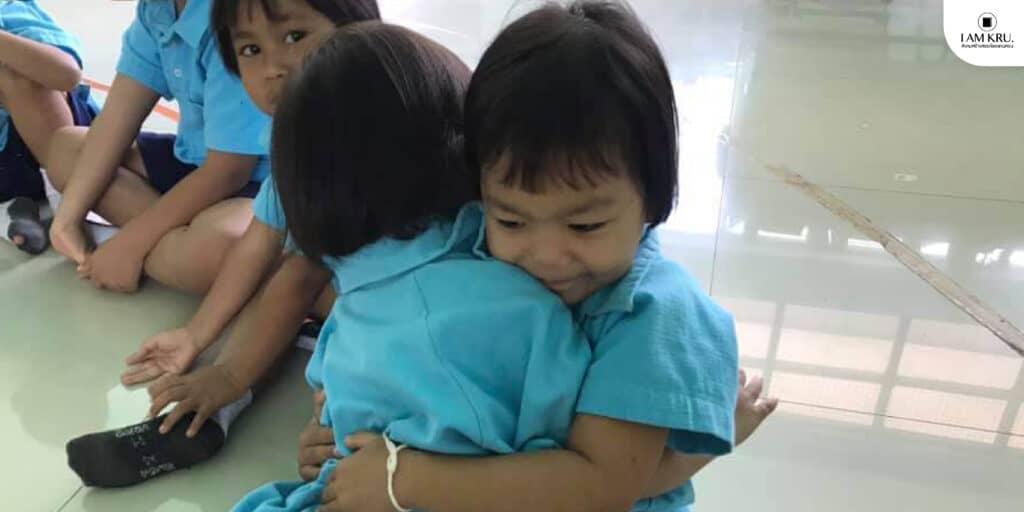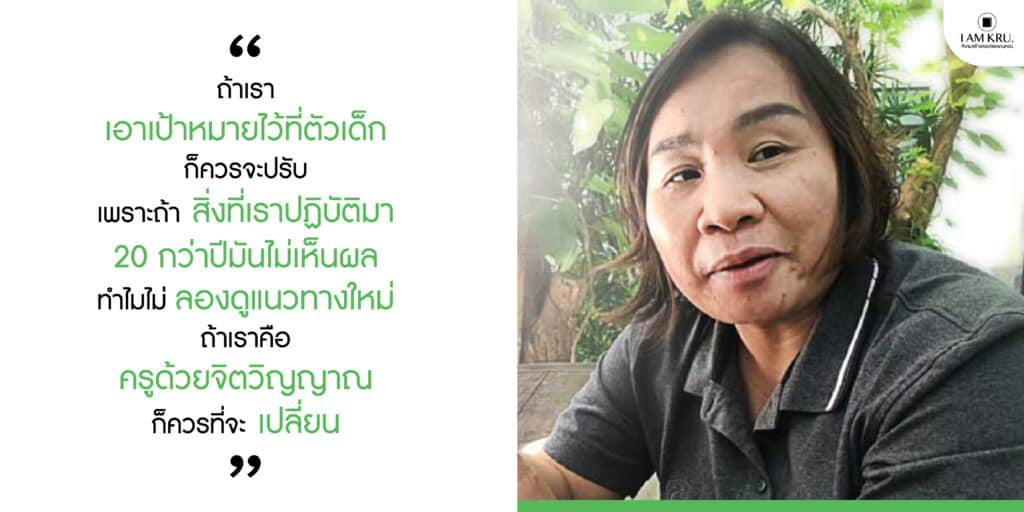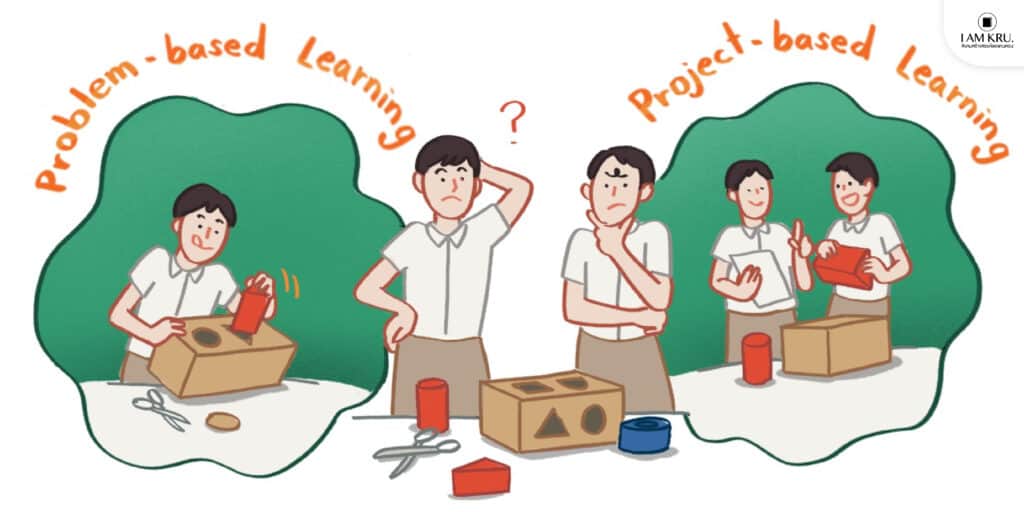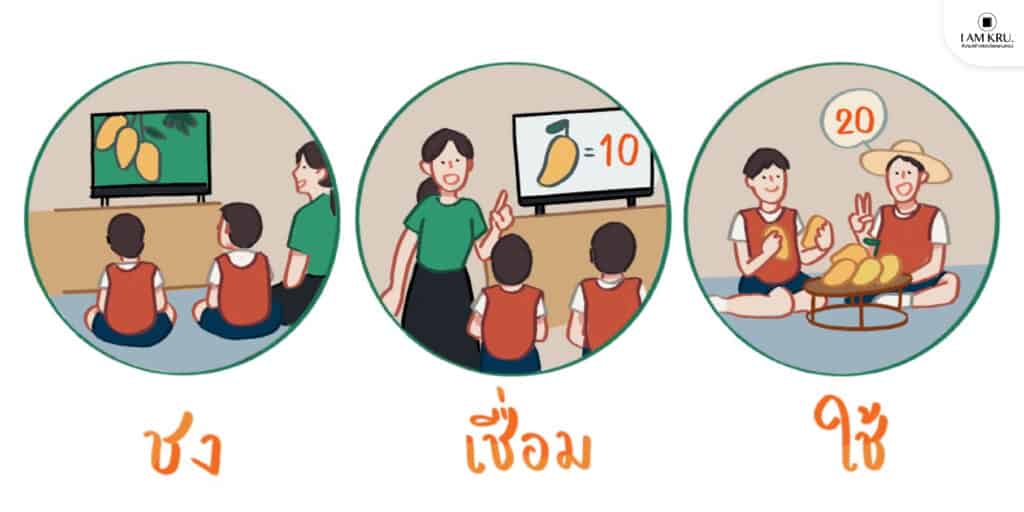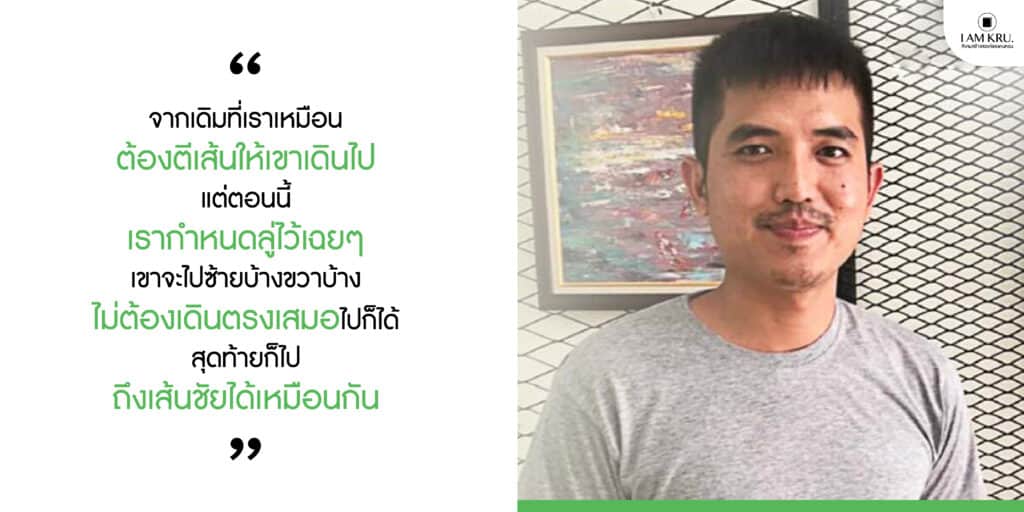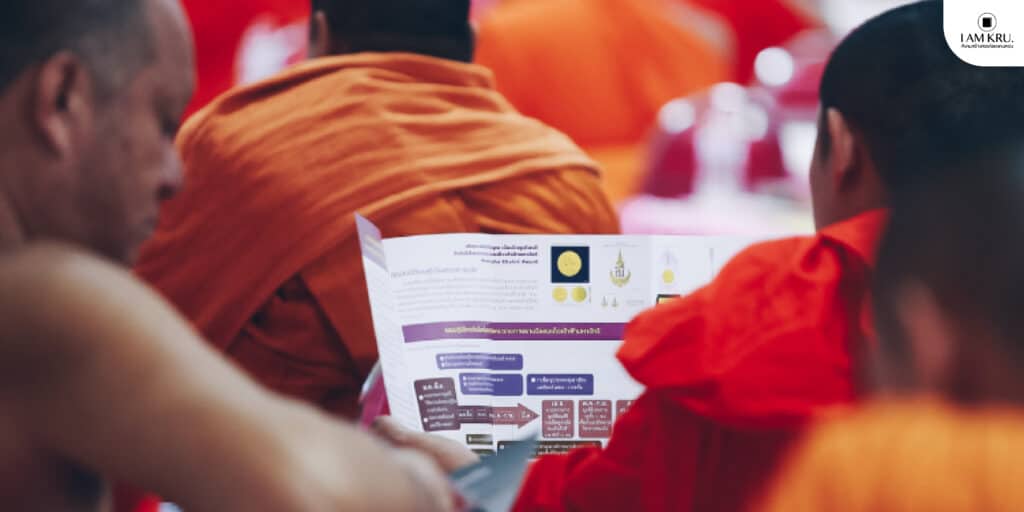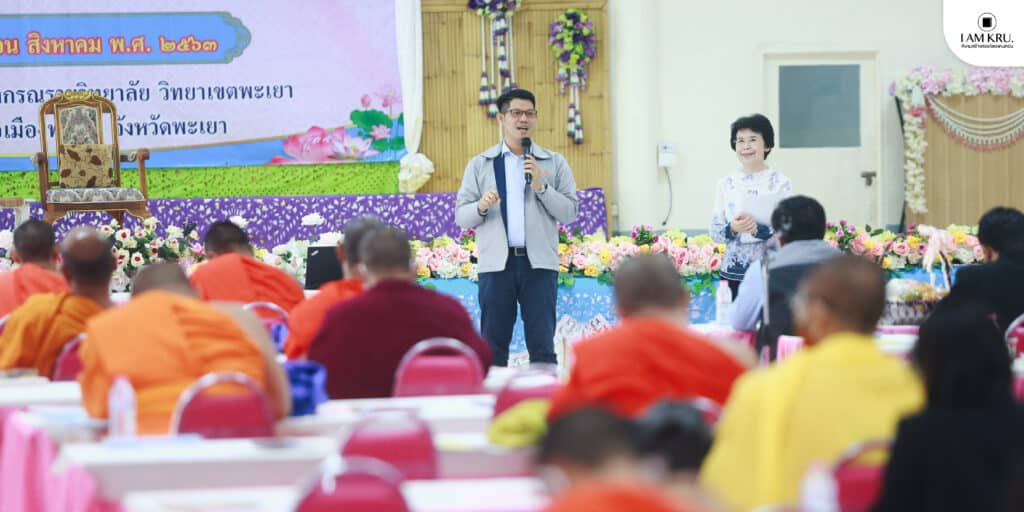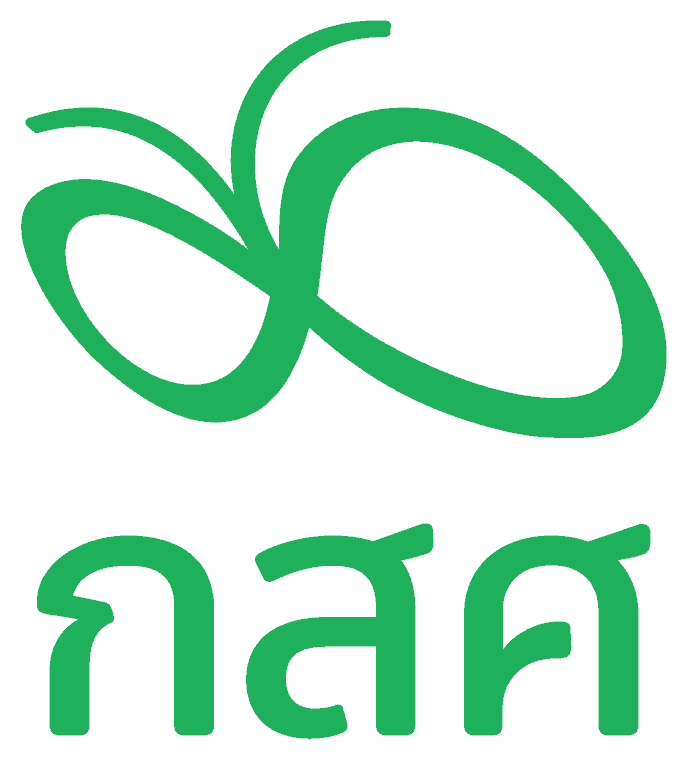In search of teachers of Kru Rak Thin to fill in the educational gap by bringing them home
When the ‘capital’ is the center of geography, governance, economics and prosperities, everything runs straight into the capital city such as Bangkok. Even the new generations are advancing along to find opportunities in the capital city. However, Thailand has a number of undeveloped areas. The question centers on how to distribute quality personnel to develop different areas of the country.
The Kru Rak Thin project was accordingly established with the concept to produce quality teachers in order that they will return home to improve education within the area of their hometown and to remain close to their family.
The first institute that produces teachers to rural areas is “Muban Chombueng Rajabhat University” established in 1954 with the aim to accept children who maintain positive attitudes but lack financial resources to cultivate them to become teachers in order that they return to teach in rural areas across the country.
The concept has its origin in Türkiye where disadvantaged children with talents and good educational performance and virtue are chosen to study in the Faculty of Education. They will return as teachers to where the scholarship is awarded after graduation. This is, furthermore, a means to allow them to work nearby their places whereas people with other careers have to abandon their hometown, scrambling to find a job in the capital.
Asst. Prof. Dr. Chairit Siladech, chancellor of Muban Chombueng Rajabhat University, Ratchaburi province, retold the history of Muban Chombueng Rajabhat University that the university originally accepted students who completed grade 7 to proceed the 5-year curriculum under High Vocational Certificate prior to becoming teachers in rural areas. This continued until 1972, it was converted into the College of Teachers before changing into ‘Rajabhat Institute’ then ‘Rajabhat University’ eventually.
The role of ‘Kru Rak Thin’: teach and develop the community simultaneously
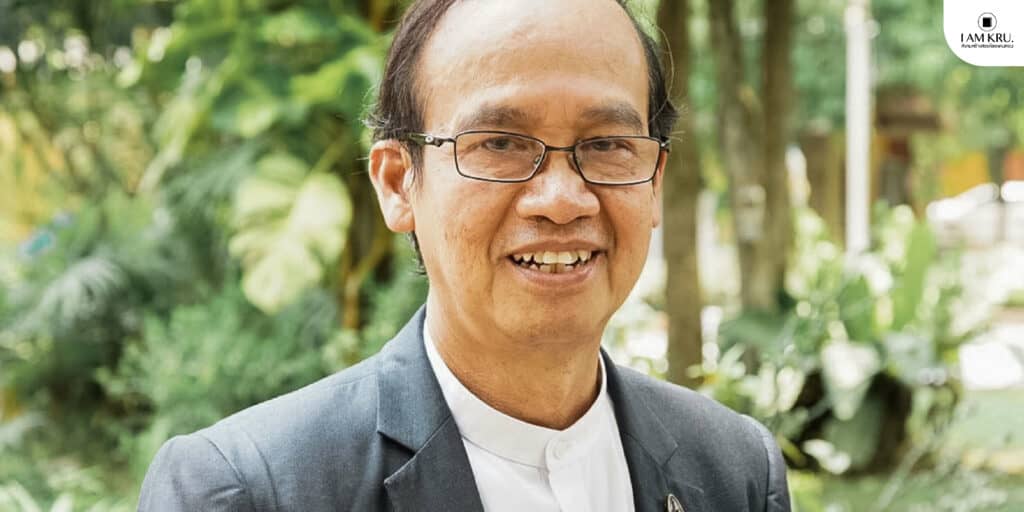
Asst. Prof. Dr. Chairit Siladech, chancellor of Muban Chombueng Rajabhat University, Ratchaburi province,
“The first generation of students were teachers of various rural schools. Many were head teachers and school directors. Most of them have retired. This is the success of the institute. The graduates can do everything, even designing a building and a toilet, although these skills may be suitable back in 60 years ago.
Those skills today may have to be adjusted to some degree, which cover both “high-touch” and “high-tech”. Specifically, teachers should be able to do manual practices such as planting and general works. They must also work in technology-related fields and know teaching devices, knowledge acquisition and community development”
Teachers of the countryside and teachers of cities are different in features. Rural teachers often have inseparable connections with rural communities because communities are dependent on schools. Meanwhile, communities support schools.
Being countryside teachers then does not only refer to the role of teaching but also when the village organizes a festival, teachers must assist. They must also supervise the communities and develop the people’s well being: these are relatively the spirit of teachers.
Muban Chombueng Rajabhat University today has a mission to participate in one of the 11 educational institutes to produce teachers of Kru Rak Thin project under the support of Equitable Education Fund (EEF). The goal is to reduce educational inequality by enabling remote areas to have quality teachers as other parts of the country.
Kru Rak Thin: give the impoverished children opportunities, allow teachers to return home and provide equitable education standard everywhere
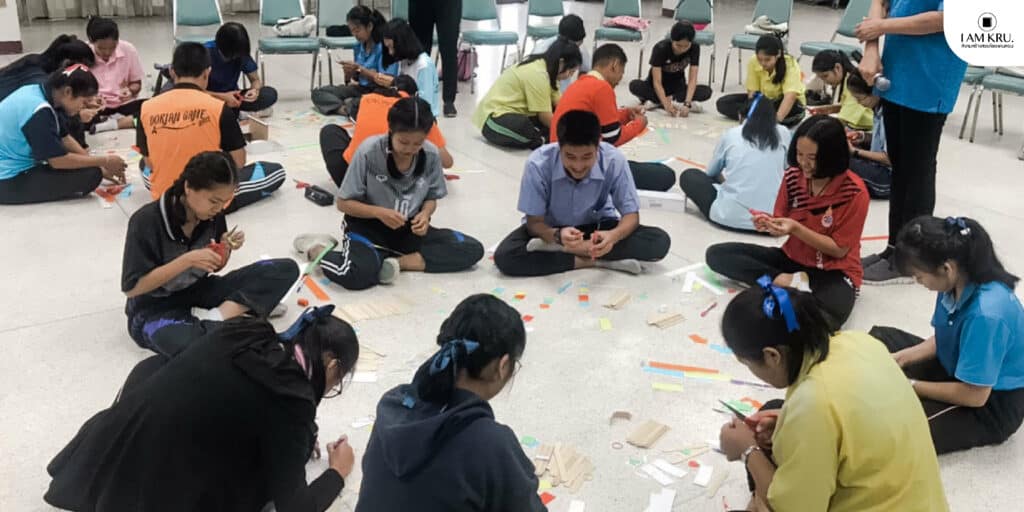
The question is “who will be the next generation of Kru Rak Thin?” Muban Chombueng Rajabhat University has assigned a team to visit the area and interview the children, teachers and parents in the community. They subsequently arranged a camp and invited the children to observe their behaviors and ensure that the selected ‘Kru Rak Thin’ children have the positive attitude towards being a rural teacher and the true spirit of being a teacher.
“The 5-day camping is seemingly a simulation for children to show their readiness to become teachers in the future, including sacrifices and the attitude toward themselves and the community. The interviews may not be as visible as their actions in camping. At the same time, students will get to know themselves whether they like it or not. Some attended the camp and found out that they did not fit in and later asked to withdraw. This is a way to allow children to examine themselves and teachers to consider children.”
The preparedness to become a teacher in the countryside is the main thing. In the past, many areas had skilled teachers. But they could not make it a long-stay and had to move to another place. Having a teacher who is committed to locate themselves in tough areas without moving away is essential to continuous development. For that reason, equitable education can equally arise everywhere. More preferably, the teachers should be voluntary to serve in the area where it is also their hometown without being forced.
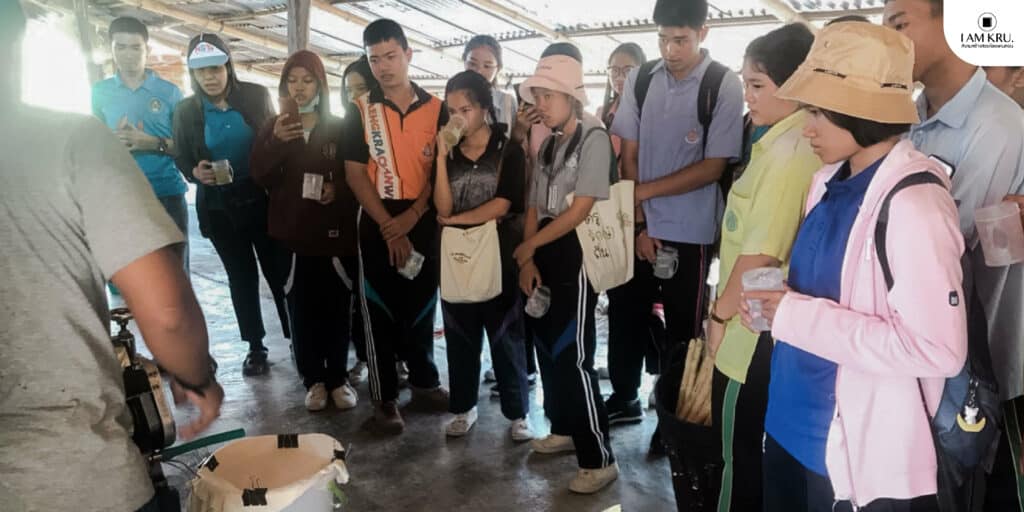
The specialty of rural teachers is, apart from the Academics, they have vocational and technological skills. They must be the community leader, have the compassion to help people in the community and participate in community development. Regardless of gender, they must be able to work as a carpenter, a welder and a plasterer. Moreover, there is a labor skill test.
The teacher’s curriculum here will start with being an observer in the freshman year. The sophomore year is the year of being teachers’ assistance. The junior year is the first attempt in jointly teaching.
During the course, there are activities that concern volunteer training because students are awarded with scholarships, they thus have more opportunities than others. The activities range from arts to sports such as Chombueng Marathon that children can participate in facilitating or going on-site to measure the distance. Also, they can volunteer in developing the community and schools in distinctive locations. For example, building a playground or painting school buildings in the countryside.
All of the training makes them a selfless person to work for the community which is an important thing when they become teachers in all areas over the country.
It is undeniable that rural teachers today must have relations with the community and the ten craftsmen skills to solve problems in every situation. However, more than half of a century passed, we may try to question more whether it is better if teachers should completely focus on teaching and the rest of the work should remain with other experts to work on their role because forcing a teacher to become ‘more than a teacher’ could be a reason that skilled teachers avoid rural areas or a reason that lowers the standard of quality education. Is it better if the government pays attention to facility development such as water supply, electricity and infrastructure in remote areas as uttered by the prime ministers of the past 50-60 years? It is not necessary to have an extensive department store, but a standard hospital, electricity, clean water supply, safe dwellings and an easy access to the basic needs, we should witness more of teachers returning home.
